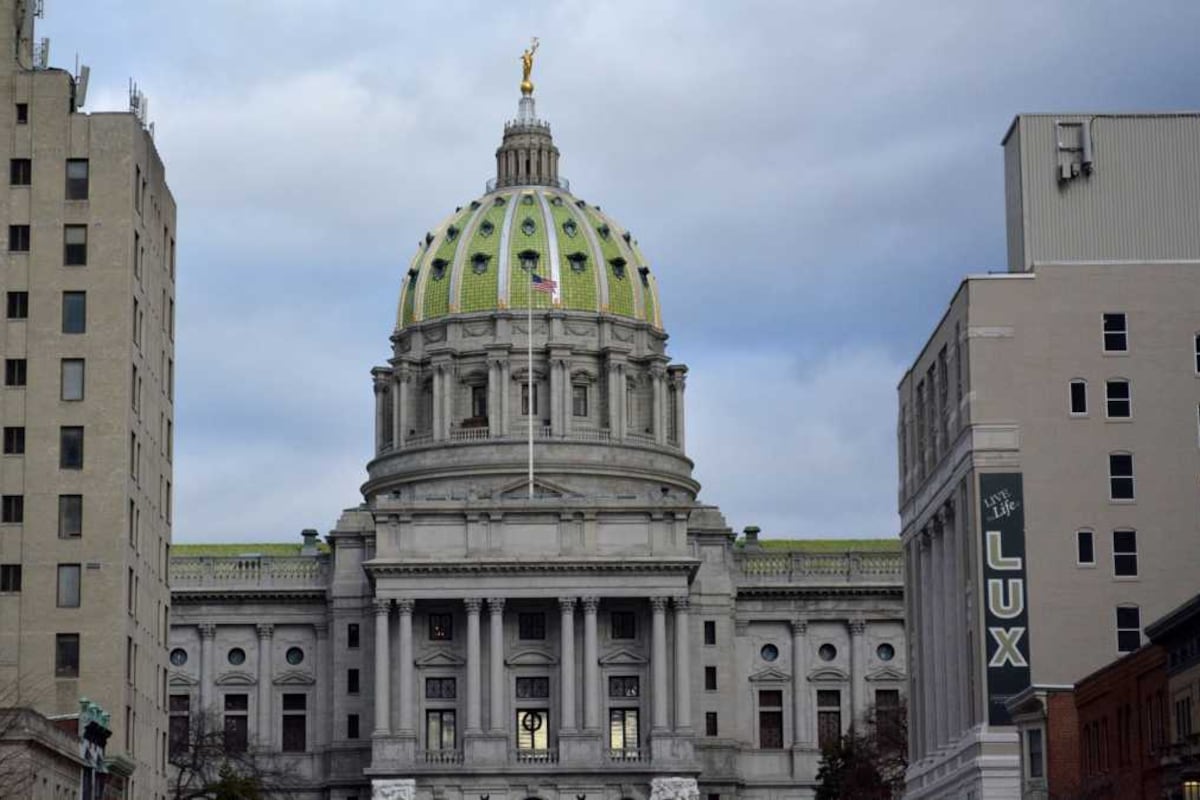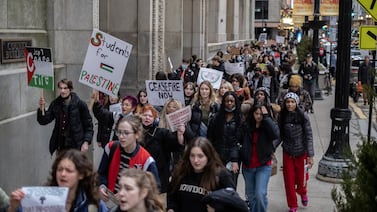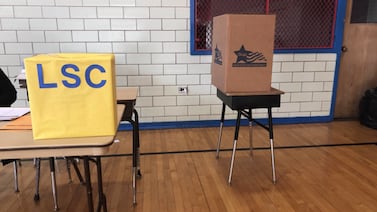Advocates for fair school funding in Pennsylvania announced a new campaign Thursday called “Level Up” that calls for the state to funnel $100 million in additional revenue to the 100 districts that lose the most under the current system for distributing state education aid.
They say it gives the legislature an “alternative” to boost funding to some of the poorest districts in the state, which includes Philadelphia and other urban areas. Many small rural districts are affected as well.
It comes as Republican legislative leaders show no signs of supporting Gov. Tom Wolf’s proposal to increase basic education aid next year by $1.5 billion and distribute the money based on a fair funding formula adopted by the legislature five years ago but only used for new money. Now, just 11% of the aid is distributed that way. Legislators limited use of the formula because some districts, primarily those with shrinking enrollment, would have lost significant revenue.
Pennsylvania ranks 44th in the state share of total education spending, which puts more burden on local property taxes. And it has the worst disparities of any state between its wealthy and poor districts.
Level Up is a coalition of children’s and students’ rights advocates, educator associations, research and policy groups, and civil rights organizations who want Pennsylvania to invest more money in schools.
“Our coalition is supportive of the governor’s plan to boost funding and address equity,” said Deborah Gordon Klehr, executive director of the Education Law Center. This idea, she said is “an alternative approach that immediately begins to address the needs of the state’s most underfunded districts.”
Representative Michael Schossberg, an Allentown Democrat, introduced legislation that would create a mechanism for distributing any additional pot of money.
Schlossberg was one of several people, including superintendents, teachers and students, who detailed the consequences of inequitable education spending in Pennsylvania.
“My wife is a teacher in Allentown and her school was built in the 1870’s,” he said. Allentown is only now starting to ease into in-person learning while neighboring districts have been open for months.
In his wife’s classroom, “her [ventilation] system is a window, if it opens,” he said. Parkland High School, just blocks away but in an adjacent district, is in a modern building with separate wings for arts and music programs, he said.
What makes the Level Up approach different, he said, “is that it has more of a chance of passing” than the governor’s proposal.
Frank Dalmas, superintendent in the tiny impoverished Sto-Rox district outside Pittsburgh, said he has consistently been forced to cut services.
“This is a tool in the tool box for lawmakers….a principled way to drive money... to districts that need it the most,” he said.
The $100 million Level Up money would be driven through the fair funding formula, which is based on enrollment and takes into account a district’s poverty, taxing capacity and other factors.
Pennsylvania schools, like others around the country, are getting federal pandemic relief money. But that is temporary, and won’t fix the embedded inequities in the system, the advocates say.
Tomea Sippio-Smith, the K-12 education policy director of Public Citizens for Children and Youth, another of the advocacy groups supporting the Level Up campaign, called it a “pragmatic” approach to getting needed money to struggling districts.
“At this rate, it will take decades and decades” for districts to achieve adequate and equitable funding, she said.
ELC, along with the Public Interest Law Center, is suing the state on behalf of six school districts and several parents to force it to distribute education dollars more equitably and assure that all students have adequate resources. The suit, the first in decades to get this far, is scheduled for trial in September. Pennsylvania judges have consistently ruled in past cases that education funding is a political, not judicial, matter.
But even if the suit is successful, it could be years before the funding system actually changes.
The 100 most underfunded districts educate disproportionately more of the state’s Black and Latino students. Earlier this month some Democratic legislators used the April 4 anniversary of Dr. Martin Luther King Jr.’s assassination to pull together a coalition of city officials, advocates, students and teachers to support Wolf and call for revamping how education is funded in Pennsylvania and for a significant increase in the state’s contribution.
State Senator Vincent Hughes, a Philadelphia Democrat, called the state’s system racist and unconstitutional.
“The funding of education in Pennsylvania is separate and unequal,” said Hughes, who organized the event. “Pennsylvania is one of the worst states in the nation in terms of how it funds an adequate basic education.”








